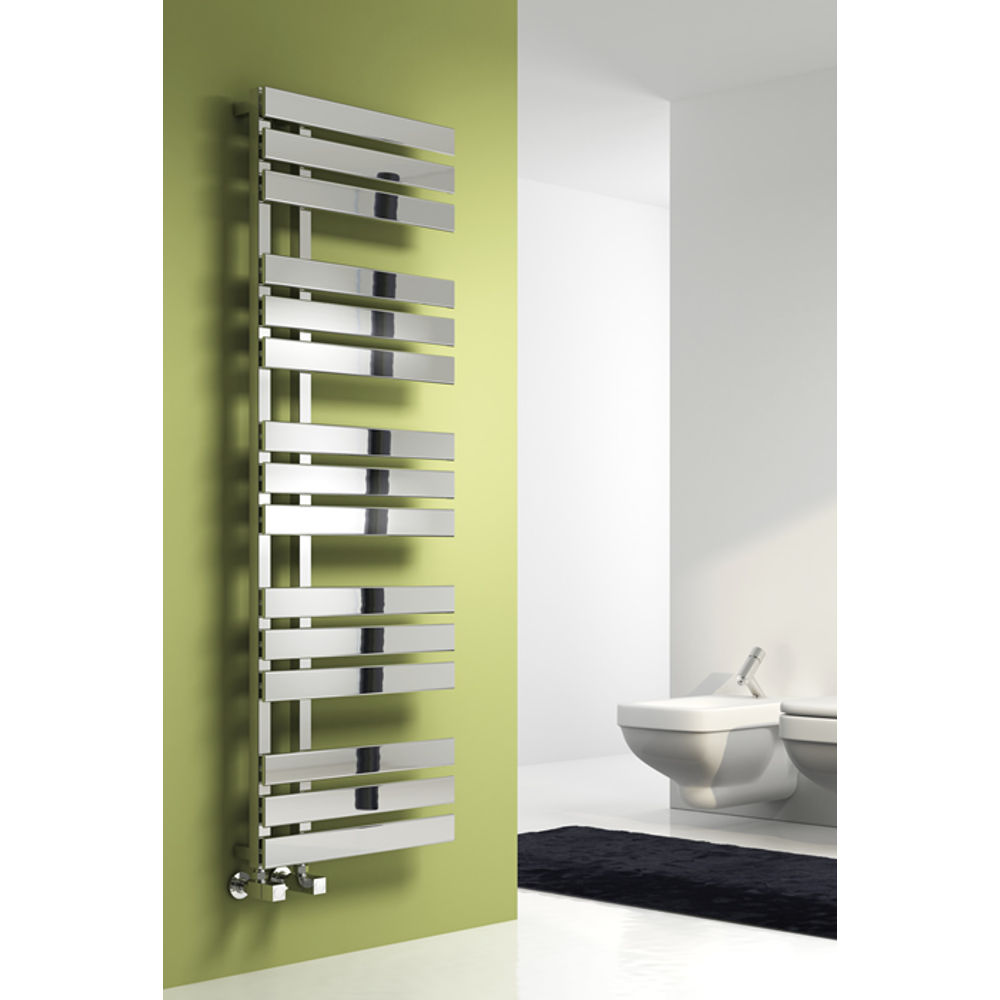Uncover the Cost of Installing a New Radiator Today
2024 Guide to New Radiator Installation Costs: Budgeting for Efficiency
Replacing an old or faulty radiator can greatly improve the efficiency of your heating system, but it’s important to understand the costs involved. In this article, we’ll explore the various factors that influence the cost of installing a new radiator, helping you to plan and budget for the project.
Factors such as the type of radiator, size, complexity of installation, and any additional work required can all impact the overall cost. By understanding these factors, you can make an informed decision on the best radiator for your space and budget.
Key Takeaways:
- Replacing an old or faulty radiator can improve your heating system efficiency
- Costs are influenced by factors such as type of radiator, size, and installation complexity
- Understanding these costs can help you plan and budget for your radiator replacement project
- Choosing the right size radiator is important for efficient heating
- Additional work required can impact the overall cost
Factors Influencing Radiator Installation Cost
Understanding the Expenses: New Radiator Installation and Operation Costs
When it comes to installing a new radiator, there are several factors that will affect the cost. Understanding these factors will help you estimate the average cost of radiator installation and plan your budget accordingly.
Type of Radiator
The type of radiator you choose will have a significant impact on the cost of installation. Traditional radiators are usually the cheapest option, while designer radiators and towel radiators can be more expensive. Column radiators are in the mid-range, price-wise.
Size of Radiator and BTU Requirements
The size of the radiator you need will also affect the cost. A larger radiator will cost more than a smaller one, and the required BTU output will need to be calculated based on the size of the room and the level of insulation. This calculation will help ensure that the radiator is the correct size for the room and is able to heat it efficiently.
Installation Complexity and Additional Work
The complexity of the installation and any additional work required will also affect the cost. If the installation is straightforward and requires no additional work, the cost will be lower. However, if the installation involves complex pipework or system upgrades, the cost will be higher. The location of the radiator and its accessibility will also have an impact on the cost.
Overall, the cost to install a radiator can vary depending on several factors, including the type of radiator, the size of the radiator, the required BTU output, and the complexity of the installation. It’s important to consider all of these factors when estimating the radiator installation cost and planning your budget.
Types of Radiators and Their Costs
When it comes to replacing your radiator, there are many different types available to choose from. Each type has its own unique features, benefits, and costs. Here, we will explore the most common types of radiators you will find in the UK and their associated costs.
| Type of Radiator | Cost Range |
|---|---|
| Traditional Radiators | £50 – £200 |
| Column Radiators | £100 – £500 |
| Designer Radiators | £100 – £1000+ |
| Towel Radiators | £50 – £500+ |
Traditional Radiators: These are the most common type of radiator you will find in UK homes. They are available in a range of sizes and styles, from simple flat panel designs to ornate and decorative models. They are also relatively inexpensive, with costs ranging from £50 to £200.
Column Radiators: These radiators have a similar design to traditional radiators but with more depth and a columned structure. They are often used as a statement piece in modern homes and come in a range of styles and colours. They are slightly pricier than traditional radiators, with costs ranging from £100 to £500.
Designer Radiators: These radiators come in unique and innovative designs, making them a popular choice for those looking to make a statement. They can be made from a range of materials, including glass and stainless steel. However, these radiators can be costly, with prices ranging from £100 to £1000+.
Towel Radiators: These radiators are designed to heat both your bathroom and towels. They come in a range of styles, from traditional ladder designs to more modern and contemporary models. They are relatively inexpensive, with costs ranging from £50 to £500+.
When considering the type of radiator to install, it’s essential to choose one that fits your budget and aesthetic preferences. It’s also important to consider any additional costs, such as installation and system upgrades, when determining the overall cost of your radiator replacement project.
Now that we have explored the different types of radiators available, let’s take a closer look at the importance of choosing the right size and heat output for your space in the next section.
Size and BTU Requirements
Choosing the right size radiator is essential for efficient heating and can impact the cost of installing a new radiator. To determine the appropriate size, BTU calculations are used. BTU (British Thermal Units) is a measure of the heat output required to heat a room, and different rooms have different BTU requirements.
The BTU requirement for a room is determined by several factors, including the size of the room in meters, the type of room, the number of windows, and the insulation level. The BTU output of a radiator is also determined by its height, length, and depth.
It’s essential to calculate the BTUs accurately, as an oversized radiator can waste energy and lead to higher energy bills, and an undersized one will not provide enough heat. An experienced plumber or heating engineer can help to calculate the correct BTU requirement for your space and recommend suitable radiators for your needs.
In terms of cost, larger radiators with higher BTU outputs will cost more than smaller ones, but they may be more cost-effective in the long run. Radiators with a higher BTU output may cost more initially but require less energy to heat the space, resulting in lower energy bills.
Installation Complexity and Additional Work
Aside from the type of radiator and size requirements, other factors that can influence the cost of installing a new radiator include installation complexity and any additional work required.
If your current radiator is in an awkward or hard-to-reach location, it may take longer for the installer to remove and replace it, therefore increasing the cost of labour. Similarly, if there are any obstructions or obstacles in the way, these will also need to be dealt with.
Another consideration is the need for extra pipework or system upgrades. If your current pipework needs to be extended or altered to accommodate the new radiator, this will increase the cost of the installation. Additionally, if your current heating system is not in good working order, you may need to have upgrades made before your new radiator can be installed.
All of these factors can add up and significantly impact the cost of your new radiator installation. However, it’s important to note that having a professional and experienced installer can help ensure that the process runs smoothly and efficiently, mitigating any unforeseen issues that may arise.
Getting an Accurate Quote
If you’re unsure about the complexity of your radiator installation or the need for additional work, it’s recommended that you get an accurate quote from a trusted installer. By providing them with as much information as possible about your current heating system and the new radiator you’d like installed, they’ll be able to give you a more accurate estimate of the total cost.
While getting a quote may cost you a small amount upfront, it can save you money in the long run by ensuring that you’re aware of all the costs associated with your new radiator installation before work begins.
With a clear understanding of the installation complexity and any additional work required, you’ll be able to make informed decisions about your new radiator and budget accordingly.
Conclusion
Installing a new radiator is a significant investment in your home’s heating system, and understanding the associated costs is crucial to make informed decisions. By considering the various factors that influence radiator installation costs, you can plan and budget for your project effectively.
Firstly, the cost of installing a new radiator depends on the type of radiator you choose. Traditional radiators are the most cost-effective option, while designer radiators and towel radiators can be more expensive but offer unique benefits.
The size of the radiator is also a critical factor in determining installation costs, with BTU calculations used to ensure efficient heating. Additionally, installation complexity and any additional work required, such as modifications to pipework or system upgrades, can increase the overall cost of the project.
It is essential to work with a reliable and professional installer to ensure your new radiator is installed correctly and efficiently. While the cost of installation may vary depending on the installer, it is worth investing in quality work to avoid potential issues and additional costs in the future.
In conclusion, the cost of installing a new radiator can vary depending on a range of factors. By considering the type of radiator, size requirements, installation complexity, and working with a reliable installer, you can plan and budget effectively to achieve a warm and comfortable home.
FAQ
Q: What factors determine the cost of installing a new radiator?
A: The cost of installing a new radiator is influenced by factors such as the type of radiator, the size of the radiator, the complexity of the installation, and any additional work required.
Q: What are the different types of radiators available and how much do they cost?
A: There are various types of radiators to choose from, including traditional radiators, column radiators, designer radiators, and towel radiators. The costs associated with these radiators vary depending on their design and functionality.
Q: How do I determine the appropriate size and heat output for my new radiator?
A: Choosing the right size radiator for your space is crucial. BTU (British Thermal Units) calculations are used to determine the appropriate size and heat output, ensuring efficient heating.
Q: Can installation complexity and additional work impact the overall cost of installing a new radiator?
A: Yes, the complexity of the installation and any additional work required, such as pipework or system upgrades, can influence the overall cost of installing a new radiator.
Q: What should I consider when planning the installation of a new radiator?
A: When planning the installation of a new radiator, factors such as the location of the radiator, accessibility, and the need for additional pipework or system upgrades should be taken into consideration.
Q: What is the significance of understanding the cost considerations for installing a new radiator?
A: Understanding the cost considerations for installing a new radiator will help you plan and budget for your radiator replacement project more effectively, ensuring you make informed decisions.
Upgrade Your Home’s Comfort with our best and New Radiators
Invest in long-lasting warmth and energy savings with our top-selling, affordable radiators. We offer reliable models to fit any budget and heating needs – no more cold spots or high bills. Check your eligibility for government heating grants, and let us help you create a cosier home while reducing your environmental impact.




